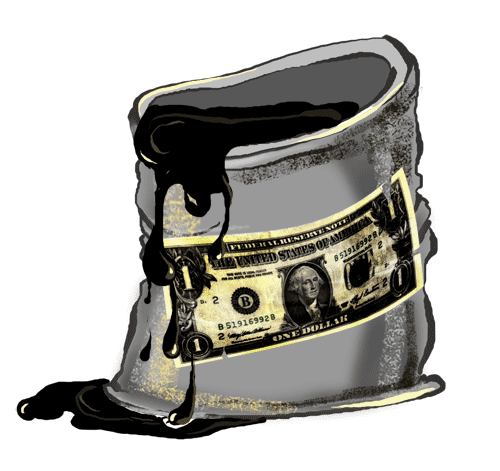India: Protest Barack Obama's visit -- `US hands off India, hands off Asia!'

Statement by All India Left Coordination
November 2010 – Liberation – US President Barack Obama’s forthcoming visit to India this November [6-9] will inaugurate a new chapter in the "strategic partnership" between US imperialism and India’s ruling class. As people of India, let us examine the interests that the US president represents and the implications of his visit for India.
Barack Obama became president of the United States because he represented, for the people of the US as well of the world, a promise of "change" – change from the imperialist policies of the Bush regime that had imposed wars, occupations and economic crisis on the world.
Tamil refugee: `Why I fled to Australia'
Aran Mylvaganam's story.
By Sue Bolton, Melbourne
Green Left Weekly -- This year is the 15th anniversary of the Nargar Kovil school massacre in Tamil Eelam, the Tamil area of Sri Lanka. On September 22, 1995, the Sri Lankan Air Force (SLAF) bombed Nargar Kovil Maha Vidyalayam schoolyard, which was crammed with 750 children on their lunch break. Reports of the number of children killed vary from 26 to 70.
Twelve of the children killed were six or seven years old. One hundred and fifty were injured, including 40 seriously. Twenty-two children had their limbs amputated. Ten of the amputees were under 12.
`Productivism' or liberation? Socialists debate consumerism

By
Ben Courtice, Melbourne
November 2, 2010 -- In a recent seminar on trade unions and the climate movement, I observed a surprising disagreement between some of the socialists present. It was started by a comment from Melbourne University academic (and Socialist Alliance activist) Hans Baer, who suggested that the “treadmill of production and consumption” had to be challenged, that we need to challenge consumerism and the alienation of work that makes people buy things to feel better.
Liz Ross of Socialist Alternative took umbrage at this, declaring that workers should create and enjoy wonderful technological products, tearing down a straw figure that Hans was supposedly arguing to stultify the creativity of the working class.
Peter Hallward: Haiti 2010 -- Exploiting disaster

With Peter Hallward's permission, Links International Journal of Socialist Renewal is making available the Afterword to the 2010 paperback edition of Hallward's Damming the Flood: Haiti and the Politics of Containment (Verso, 2010), published in November. Readers can download the essay HERE, or read it on screen below.
Links' readers are urged to purchase Damming the Flood: Haiti and the Politics of Containment. Click here to do so.
Read more on the situation in Haiti HERE.
* * *
By Peter Hallward
The Flame, October-November 2010 -- Green Left Weekly's Arabic-language supplement
Soubhi Iskander.
November 2, 2010 -- With the help of Socialist Alliance members in the growing Sudanese community in Australia, Green Left Weekly -- Australia's leading socialist newspaper -- publishes a regular Arabic language supplement. The Flame covers news from the Arabic-speaking world as well as news and issues from within Australia. Editor-in-chief is Soubhi Iskander is a comrade who has endured years of imprisonment and torture at the hands of the repressive government in Sudan.
Haiti nine months after the quake: Poor tell West, ‘Nothing! Nothing! We’ve seen nothing!’

By Isabeau Doucet
October 28, 2010 -- Pambazuka News -- "Nothing! Nothing! We’ve seen nothing!", chanted the crowd of internally displaced people (IDP). They were pursuing former US president Bill Clinton from his photo-op in their squalid camp on his way to the third Interim Haiti Reconstruction Commission (IHRC) meeting in downtown Port-au-Prince on October 6, 2010.
The crowd protesting Clinton was from the IDP camp on the golf course of the former Pétionville Club, a bourgeois enclave created by US marines when they first occupied Haiti from 1915 to 1934. Ironically, the camp is considered one of the capital’s best, thanks to the attention brought to it by actor Sean Penn.
Behind the new economic measures in Cuba

[For more analysis and discussion on the economic changes in Cuba, click HERE.]
By Ike Nahem, Cuba Solidarity New York
South Africa: What would Chris Hani say today?

Chris Hani.
Currency wars and the privilege of empire

By Paul Kellogg
October 23, 2010 -- PolEconAnalysis -- In uncertain times, the headline was soothing: "Secretary Geithner vows not to devalue dollar".[1] United States Secretary of the Treasury Timothy Geithner was saying, in other words, that if there were to be "currency wars" -- competitive devaluations by major economies in attempts to gain trade advantage with their rivals -- the United States would not be to blame. Who, then, would be the villain? China, of course.
Earlier this year, Democratic Party congressman Tim Murphy sponsored a bill authorising the United States to impose duties on Chinese imports, made too inexpensive (according to Murphy and most other commentators) by an artificially devalued Chinese currency. "It's time to deliver a strong message to Beijing on behalf of American manufacturing: Congress will do whatever it takes to protect American jobs."[2]
Turning the tide of oil in US and world politics

By Dan La Botz
